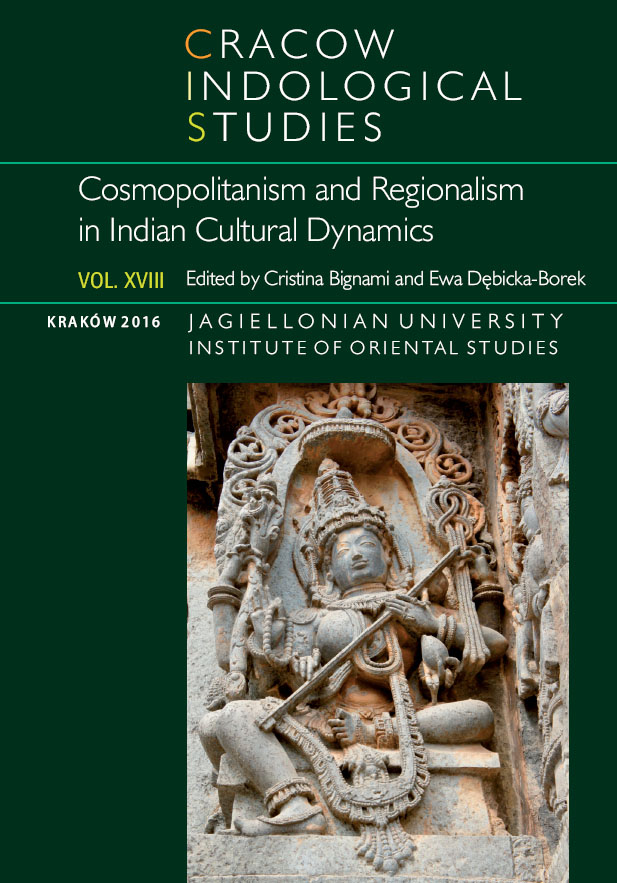Immanence, Abjection and Transcendence through Satī/Śakti in Prabha Khaitan’s Autobiography "Anyā se ananyā"
Immanence, Abjection and Transcendence through Satī/Śakti in Prabha Khaitan’s Autobiography "Anyā se ananyā"
Author(s): Alessandra ConsolaroSubject(s): Studies of Literature
Published by: KSIĘGARNIA AKADEMICKA Sp. z o.o.
Keywords: Prabha Khaitan; autobiography; abjection; transcendence; satī; śakti; embodiment
Summary/Abstract: This article aims to explore embodiment as articulated in Prabha Khaitan’s autobiography Anyā se ananyā, inscribing it in a philosophical journey that refuses the dichotomy between Western and Indian thought. Best known as the writer who introduced French feminist existentialism to Hindi-speaking readers through her translation of Simone de Beauvoir’s The Second Sex, Prabha Khaitan is positioned as a Marwari woman, intellectual, successful businesswoman, poet, novelist, and feminist, which makes her a cosmopolitan figure. In this article I use three analytical tools: the existentialist concepts of ‘immanence’ and ‘transcendence’—as differently proposed by Jean-Paul Sartre and Simone de Beauvoir; Julia Kristeva’s definition of ‘abjection’—what does not ‘respect borders, positions, rules’ and ‘disturbs identity, system, order;’ and the satī/śakti notion—both as a venerated (tantric) ritual which gains its sanction from the scriptures, and as a practice written into the history of the Rajputs, crucial to the cultural politics of Calcutta Marwaris, who have been among the most vehement defenders of the satī worship in recent decades.
Journal: Cracow Indological Studies
- Issue Year: 20/2018
- Issue No: 2
- Page Range: 231-256
- Page Count: 26
- Language: English

